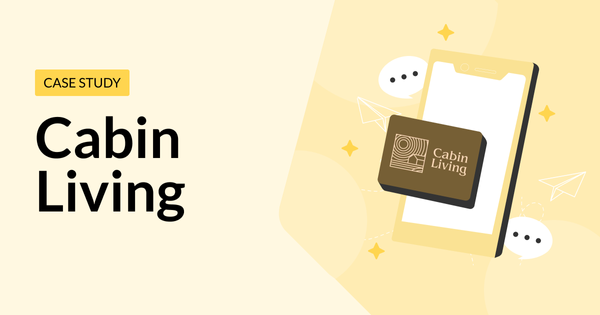Short-term Rental News Digest – June 2021

A year ago, the data started to indicate that domestic travel was starting to increase in certain locations. While urban locations are not yet at the same level as in 2019 before the pandemic, AirDNA predicts that this will start to change in the next few months.
Another interesting change to look out for in the near future is the launch of the Community Integrity Program, a joint effort by Airbnb and Vrbo. If the pandemic has taught us anything, it is that, at the end of the day, we are all in this together. It is by standing together and sharing insight that we become better, as individual hosts and an industry as a whole.

iGMS Bags Another Award
Digital.com, an online reviews website that helps small businesses find the best tools, has included iGMS in its Best Vacation Rental Apps of 2021 list as one of its top picks. More than 135 vacation rental software solutions were researched. So, to be included as one of the top six is quite an achievement. While researching the best vacation rental software, they concentrated on three critical factors, namely features, integrations, and reports, that should help to make rental management easy and efficient.
Demand in Major US Cities to Rebound in 2022
When the data of April 2019 is compared to that of April 2021, it shows that the demand for urban properties is still more than 40% lower. Though, hope is around the corner. The good news is that in its US Short-Term Rental Economic Outlook, AirDNA, has revealed that 2022 will be the year for the major American cities.
The short-term rental data and analytics provider anticipates that urban travel will start to pick up in the latter part of 2021 already, improve significantly in 2022, and recover fully by 2023.
Airbnb and Vrbo Join Forces
So-called party houses cause problems for hosts, the community, and the vacation rental industry as a whole. As a result, two of the major platforms, Airbnb and Vrbo, have decided to join forces by creating the Community Integrity Program. With the help of a third-party go-between, the platforms will create a process that will help them to identify properties that have violated community policies repeatedly.
Before this initiative, Airbnb and Vrbo relied on their own measures to curb parties. Though, once Airbnb removed a host, in many instances, he/she simply created a new listing on Vrbo and vice versa. A statement from Airbnb explains, “Neighbors don’t care if a party house is getting its reservations through any particular platform – they just want the parties to stop. That’s why one platform alone can’t solve this problem – it requires an industry-wide effort.” The Community Integrity Program is anticipated to launch in the next few months.
A Smarter OTA Launched
In London, Smarter, a new platform for short stays, was launched. What sets it apart from other marketplaces is that it focuses on sustainable accommodation. Its curation process looks at the listing’s quality as well as the management service.
Guy van der Westhuizen, the founder of the platform, explains, “Smarter is here to restore booking confidence and travelers’ trust, and together with our partner managers, to reshape the industry from the top in a way that serves the planet, and our guests, a great deal better.” They will also partner with ClimateCare to deliver carbon emission reductions and other sustainable development impacts.
Hipcamp Partners With Pitched
Hipcamp, an online marketplace that provides unique outdoor stays, has partnered with Pitched, a Canadian camping startup, to expand its presence to Canada. Over 600 Canadian hosts have already taken advantage of this partnership by listing their properties on Hipcamp. Moreover, it also offers an opportunity for other Canadian entrepreneurs. Thanks to its photography program, amateur Canadian photographers will also be able to qualify for free accommodation at Hipcamp properties in exchange for capturing photos of the offerings.
The founder of Hipcamp, Alyssa Ravasio, explained that this move was fuelled by the need for more outdoor experiences in Canada. Earlier this year, Hipcamp was voted as the most innovative company in travel by Fast Company.

Booking.com to Repay the Dutch Government
Booking.com will repay the Dutch government close to $80 million for its support during the coronavirus pandemic. While Wouter Koolmees, the Minister of Social Affairs and Employment, explained that there was no legal grounding to enforce repayment, this decision comes in the light of the Dutch parliament’s reaction. Earlier this month, the NRC Handelsblad, a Dutch newspaper, reported that both the CEO and CFO of the platform received bonuses of more than $7 million respectively.
Leslie Cafferty, the spokesperson of Booking.com, explains, “While we have not recovered fully, we have heard Dutch society, and have taken considerations seriously. As we are in a more stable position than when we applied for the NOW program in early 2020, and on a path toward recovery, we will pay back the subsidies received.”
UK’s Lifting of Restrictions Delayed
Boris Johnson, the Prime Minister of the United Kingdom, stated that England’s roadmap to recovery will be delayed by four weeks. Instead of June 21, the final lifting of restrictions is currently set to take place only on July 19. This decision comes in light of the spread of the Delta variant and can cost the sector as much as £3 billion in sales, according to Kate Nicholls, the chief executive of UKHospitality.






